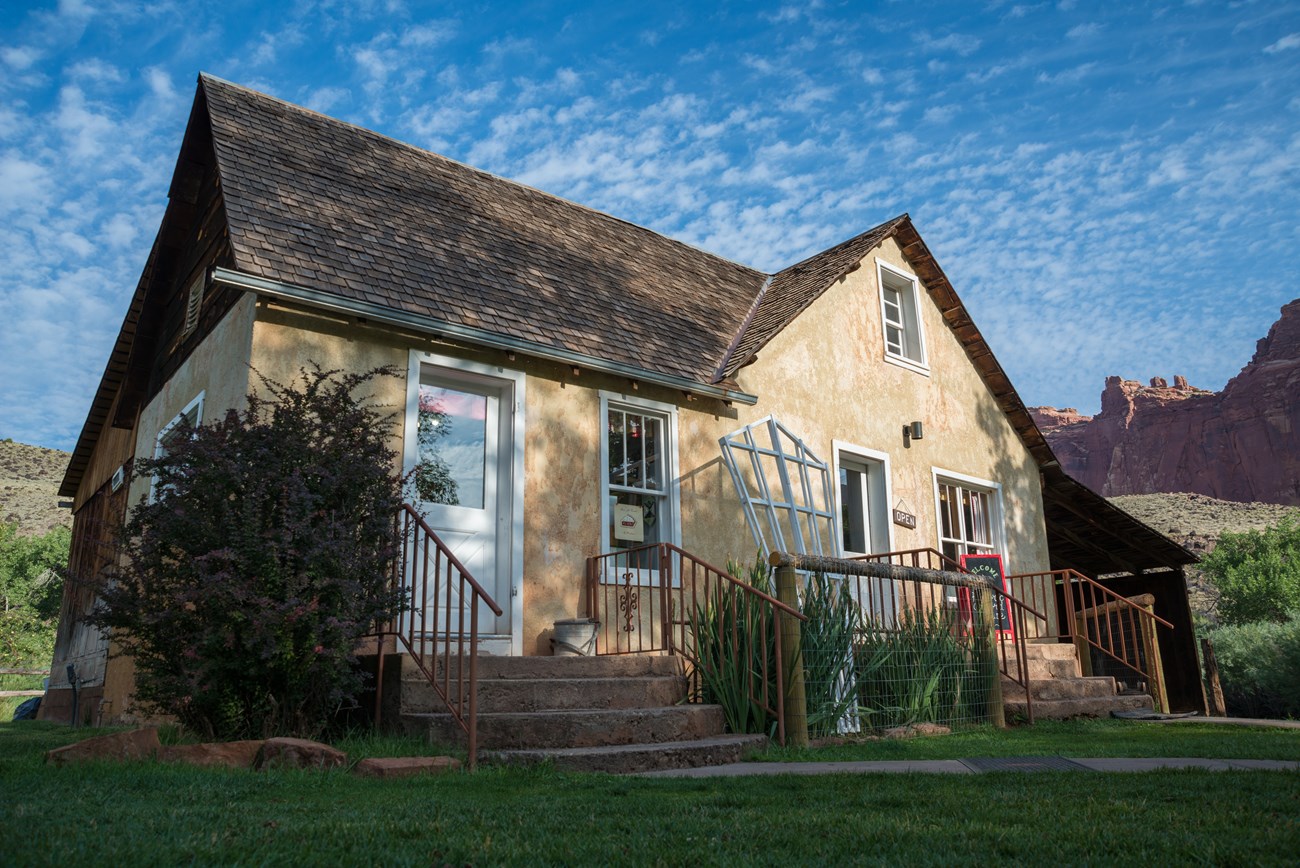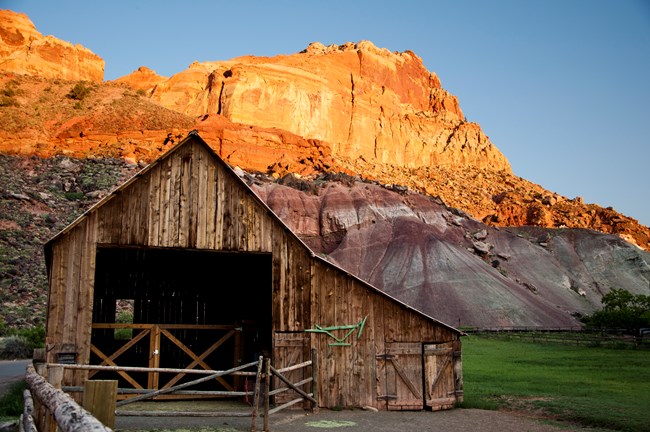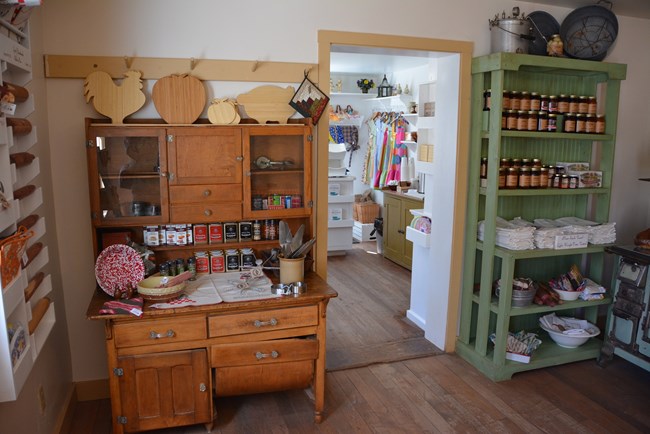
NPS/Nathan Gross The Gifford farm lies in the heart of the Fruita valley, a desert oasis described by Wallace Stegner as "...a sudden, intensely green little valley among the cliffs of the Waterpocket Fold, opulent with cherries, peaches, and apples in season, inhabited by a few families who were about equally good Mormons and good frontiersmen and good farmers."¹ The 200 acre Fruita Rural Historical District is listed on the National Register of Historic Places. The Capitol Reef Natural History Association, in cooperation with the National Park Service, has renovated and refurnished the Gifford farmhouse as a cultural demonstration site to interpret the early Mormon settlement of the Fruita valley. The house depicts the typical spartan nature of rural Utah farm homes of the early 1900s. In addition to the farmhouse, the Gifford homestead includes a barn, smokehouse, garden, pasture, and rock walls. 
NPS/Lewis Residents and ImprovementsThe original home was built in 1908 by Calvin Pendleton. He and his family occupied it for eight years. The original house had a combined front room/kitchen and two small bedrooms. An outside ladder accessed two upstairs bedrooms. Pendleton also constructed the barn and smokehouse, as well as the rock walls near the house and on the mesa slopes above it. The second residents of the home were the Jorgen Jorgensen family who resided here from 1916 to 1928. Jorgensen's daughter, Nell, married Dewey Gifford in 1923, and Jorgensen sold the homestead to his son-in-law in 1928. The Gifford family occupied the home for 41 years (1928-1969). Gifford added a kitchen in 1946 and the bathroom, utility room, and carport in 1954. That same year, the Giffords also built a small motel for people visiting Capitol Reef. Life On the FarmThe Giffords raised dairy cows, hogs, and sheep, as well as chickens and ducks. They also ran cattle in the South Desert. They used the smokehouse to preserve meat for their own use and for sale. Dewey Gifford also worked for the State Road Department and later for the National Park Service, to supplement his farm income. The family ate whatever they raised. The garden produced a variety of vegetables including potatoes, beans, peas, squash, lettuce, radishes, corn, and watermelons. The family also had orchards and grew sorghum. They preserved fruit and vegetables for later use by bottling or drying. Bottled foods were stored in the cellar below the front of the house. Dry goods, such as potatoes, were kept in the root cellar on the back side of the house. Water was carried to the house from the Fremont River and was used untreated. A two-hole outhouse served the family until an indoor bathroom and plumbing was installed in later years. The house received electricity in 1948. The Giffords frequently got together with other Fruita residents, especially the Chesnut and Mulford families, for suppers, singing, games, cards, baseball, reading, and quilting. The families were good friends and helpers to each other, an important relationship in a small isolated community like Fruita. Listen to Gifford reflect on his life in Fruita (below). The Giffords were the last residents of Fruita. Dewey and Nell Gifford sold their home and land to the National Park Service in 1969 and moved away. With the Giffords' departure, the story of Fruita as a farming community came to a close. Today, the pioneer spirit of Fruita can be experienced by exploring the Fruita rural cultural landscape and by visiting the Gifford Homestead.

NPS/ Ralph Webb 
NPS/Chris Roundtree The Gifford House TodayThe former kitchen (a non-historic addition to the original house) has been converted into a Natural History Association sales outlet. Items for sale include reproduction utensils and household tools used by Mormon pioneers in their daily tasks. These unique handmade items are made by local artisans and craftsmen and include such things as quilts, aprons, woven rugs, soap, crockery, candles and toys. A wide selection of books, historic postcards, jams, jellies, and locally baked fruit pies and homemade ice cream, are available. The Gifford Homestead is located 1 mile (1.6 km) south of the visitor center on the Scenic Drive. The Gifford House is typically open from March 14 (Pi Day) to late November (closing dates and operating hours may vary). A small parking lot is adjacent to the Gifford yard. Parking for oversized vehicles is available at the picnic area. Follow the signs and trail from the picnic area. ¹Wallace and Page Stegner, American Places, photographs by Eliot Porter, John Macrea, III, editor (New York: E.P. Dutton, 1981), 122. |
Last updated: February 27, 2024
